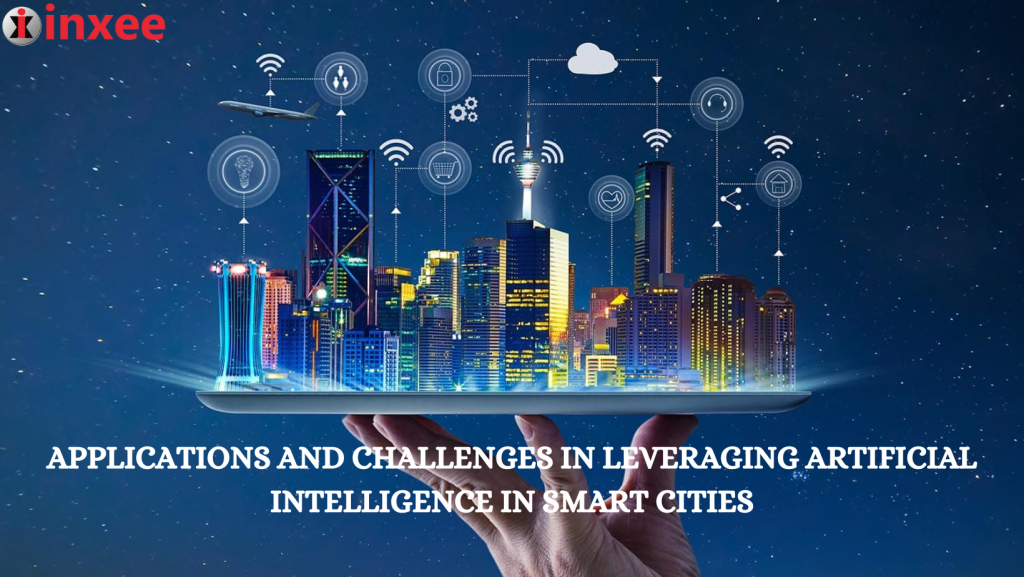Applications and Challenges in Leveraging Artificial Intelligence in Smart Cities
 Artificial intelligence (AI) has the potential to revolutionize the way cities operate, making them smarter, more efficient, and more sustainable. By leveraging data and advanced algorithms, AI can help city governments and organizations optimize services, improve public safety, and enhance the quality of life for residents. However, there are also several challenges that must be addressed to successfully implement AI in smart cities.
Artificial intelligence (AI) has the potential to revolutionize the way cities operate, making them smarter, more efficient, and more sustainable. By leveraging data and advanced algorithms, AI can help city governments and organizations optimize services, improve public safety, and enhance the quality of life for residents. However, there are also several challenges that must be addressed to successfully implement AI in smart cities.
Applications of AI in Smart Cities:
Traffic Management: AI can help optimize traffic flow and reduce congestion by analyzing real-time data from cameras and sensors, and adjusting traffic signals accordingly.
Energy Management: AI can help reduce energy consumption and lower costs by analyzing data from smart meters, weather forecasts, and building sensors to optimize energy usage.
Public Safety: AI can help enhance public safety by analyzing data from cameras, sensors, and social media to detect and prevent crime, monitor crowds, and respond to emergencies.
Waste Management: AI can help optimize waste collection by analyzing data from sensors in trash cans and using predictive analytics to determine when and where collection is needed.
Citizen Services: AI-powered chatbots and virtual assistants can help citizens navigate city services and provide personalized recommendations and information.
Challenges in leveraging AI in Smart Cities:
Data Privacy and Security: AI relies on large amounts of data, raising concerns about privacy and security. Cities must ensure that data is collected and stored securely, and that citizens’ privacy is protected.
Bias and Discrimination: AI algorithms may perpetuate biases and discrimination if they are trained on biased data or not designed with diversity and inclusivity in mind.
Lack of Standards and Interoperability: With many different sensors, platforms, and systems in use in smart cities, there is a lack of standards and interoperability, making it difficult to integrate and analyze data.
Cost and Implementation: Implementing AI in smart cities can be expensive and requires significant resources and expertise. Cities must carefully consider the costs and benefits of each application and prioritize implementation accordingly.
Public Acceptance: Finally, the success of AI in smart cities will depend on public acceptance and trust. City governments must engage citizens and ensure that they understand the benefits and potential risks of AI, and that they have a say in how it is implemented.
Conclusion: AI has enormous potential to transform smart cities, making them more efficient, sustainable, and livable. However, there are also significant challenges that must be addressed to ensure that AI is implemented in a responsible and equitable way. City governments must work closely with citizens, businesses, and experts to develop and implement AI strategies that meet the needs of all stakeholders and contribute to a better future for all.









Leave a Reply